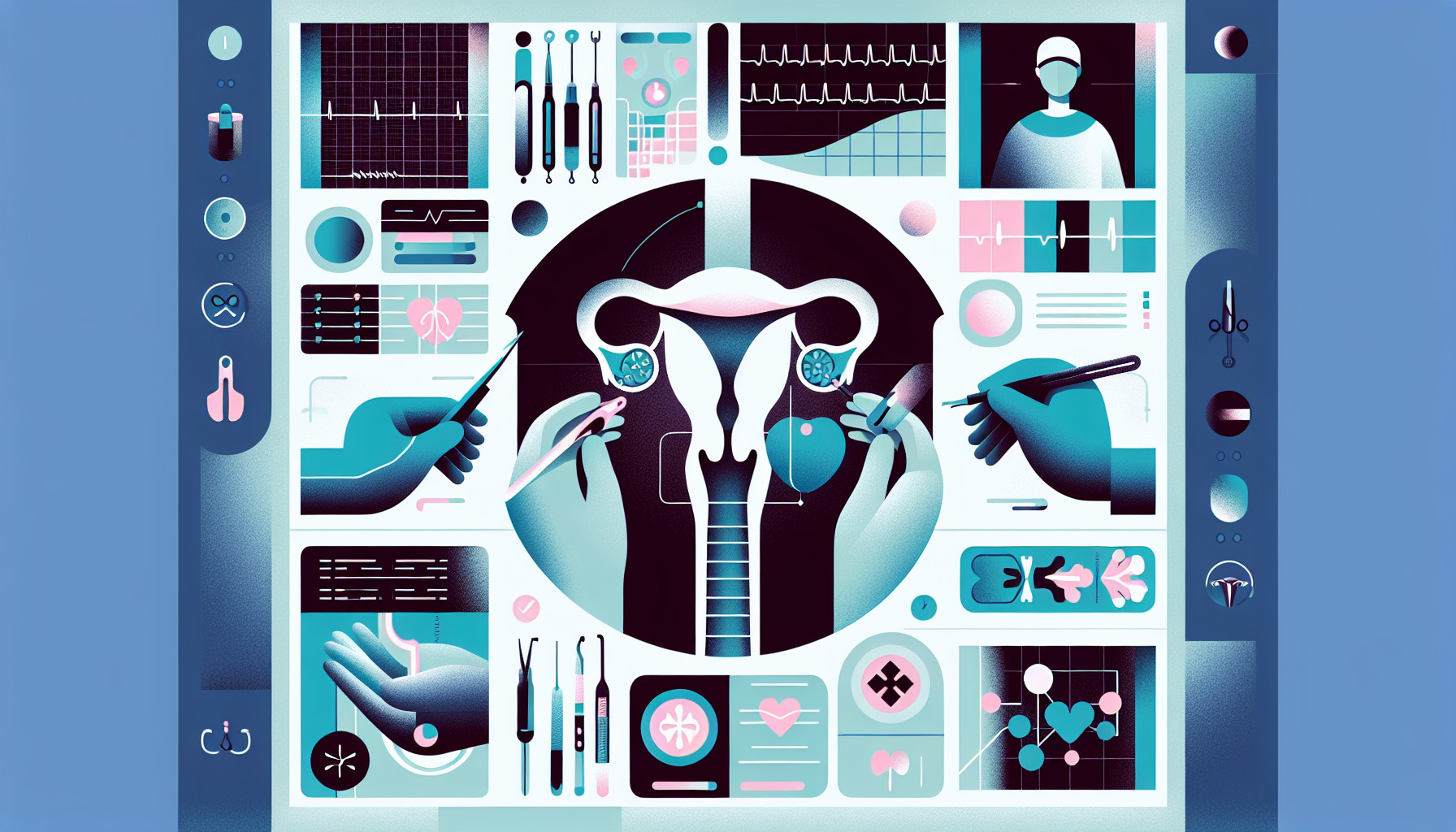Our Summary
This research paper is about a study that compared the cost-effectiveness of different treatments for heavy menstrual bleeding. The researchers looked at thousands of articles from various databases, and out of those, they picked 23 to study in-depth. They found that methods for comparing cost-effectiveness varied greatly, which made it hard to determine the best treatment. However, a common treatment that emerged as cost-effective was the levonorgestrel-releasing intrauterine device (LNG-IUD). The researchers concluded that more research is needed to figure out the best treatment strategies and how to allocate healthcare resources.
FAQs
- What was the main focus of this research paper?
- Which treatment for heavy menstrual bleeding was found to be cost-effective in the study?
- What did the researchers recommend for future studies regarding treatment for heavy menstrual bleeding?
Doctor’s Tip
A helpful tip a doctor might tell a patient about endometrial ablation is to make sure to discuss all treatment options with your healthcare provider, including the possibility of using a levonorgestrel-releasing intrauterine device (LNG-IUD) as a cost-effective option for managing heavy menstrual bleeding. It’s important to weigh the benefits and risks of each treatment option before making a decision.
Suitable For
Patients who are typically recommended for endometrial ablation are those who have heavy menstrual bleeding (menorrhagia) that has not responded to other treatments such as medication or hormonal therapy. Endometrial ablation is often considered for women who have completed their childbearing or do not wish to have children in the future. It may also be recommended for patients with certain medical conditions that make other treatments less effective or not suitable. Endometrial ablation is not recommended for patients who have certain uterine conditions, such as uterine cancer or large fibroids, or who have a desire to have children in the future. It is important for patients to discuss their individual medical history and treatment options with their healthcare provider to determine if endometrial ablation is the right choice for them.
Timeline
Before endometrial ablation:
- Patient experiences heavy menstrual bleeding, which may lead to anemia, fatigue, and decreased quality of life.
- Patient may have tried other treatments such as hormonal therapy, medication, or dilation and curettage (D&C) with little success.
- Patient undergoes a consultation with their healthcare provider to discuss the option of endometrial ablation as a treatment for their heavy menstrual bleeding.
After endometrial ablation:
- Patient undergoes the endometrial ablation procedure, which typically takes less than an hour and can be done on an outpatient basis.
- Patient may experience some cramping and mild discomfort after the procedure, but can usually resume normal activities within a few days.
- Over the following weeks and months, the patient will experience a significant reduction in menstrual bleeding, with many patients reporting lighter periods or even no periods at all.
- Patient may also experience improvements in their quality of life, including decreased pain, fatigue, and anxiety related to heavy menstrual bleeding.
- Follow-up appointments with their healthcare provider will be scheduled to monitor the effectiveness of the procedure and address any concerns or complications.
What to Ask Your Doctor
- What is endometrial ablation and how does it work?
- What are the potential risks and complications associated with endometrial ablation?
- How successful is endometrial ablation in treating heavy menstrual bleeding?
- Are there any long-term effects or implications of undergoing endometrial ablation?
- What is the recovery process like after undergoing endometrial ablation?
- Are there any alternative treatments for heavy menstrual bleeding that I should consider?
- How do the costs of endometrial ablation compare to other treatment options for heavy menstrual bleeding?
- Will my insurance cover the cost of endometrial ablation?
- What is the success rate of endometrial ablation in preventing the need for further interventions or surgeries in the future?
- Are there any lifestyle changes or precautions I should take after undergoing endometrial ablation?
Reference
Authors: Niaraees Zavare AS, Rezapour A, Souresrafil A, Rouholamin S, Nassiri S. Journal: Expert Rev Pharmacoecon Outcomes Res. 2025 Feb;25(2):155-171. doi: 10.1080/14737167.2024.2417014. Epub 2024 Oct 18. PMID: 39394931
